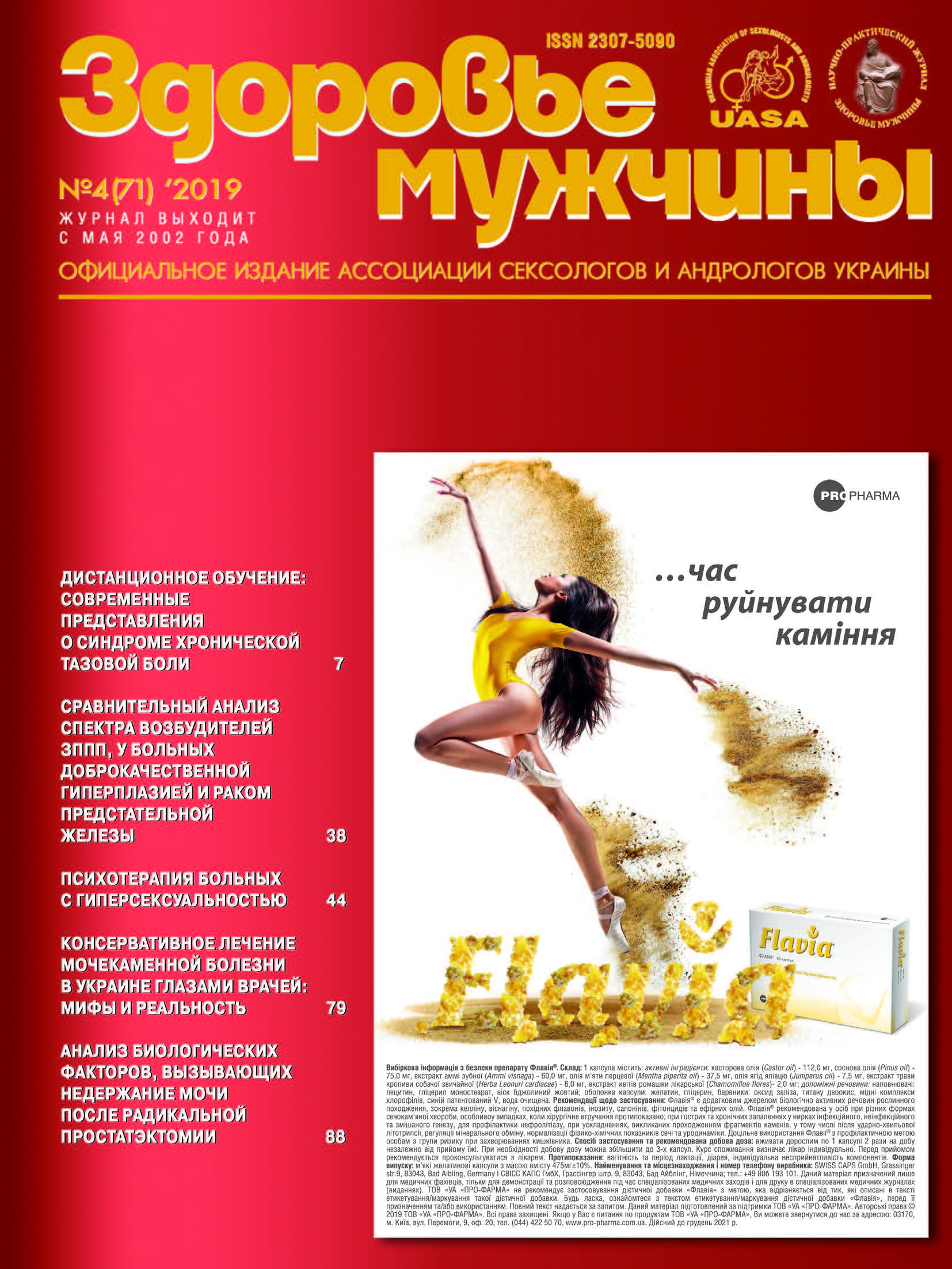New Approaches to the Treatment of Uncomplicated Urinary Tract Infections
##plugins.themes.bootstrap3.article.main##
Abstract
The most common cause of uncomplicated urinary tract infections is acute cystitis. This is the most common reason for visiting a urologist among women of young and middle age. At the same time, the number of relapses of the disease remains very significant and, as a rule, is explained by ineffective antibiotic therapy.
The objective: to analyze the effectiveness and safety of the use of the immunoactive drug Urivak in complex therapy in patients with acute, including recurring cystitis, after a course of antibiotic therapy as an anti-relapse/prophylactic agent.
Materials and methods. The study included 58 women who turned to a urologist in connection with acute cystitis. Patients were divided into two groups. In the control group (n = 25), women received antibiotic therapy, in the main group (n = 33) - antibiotic therapy followed by prophylactic administration of the Urivak vaccine.
Results. In the 1st (control) group, after 10 days of antibiotic therapy (ABT), the patients were followed up for another 3 months. Moreover, the number of relapses was 8% already in the first month and increased to 32% by the end of the study. In the main group, after ABT, patients received treatment with Urivak according to the scheme: 10 days, 1 capsule per day every first decade for 3 months.
Conclusion. The use of the immunoactive drug Urivak in the complex treatment of uncomplicated urinary tract infections has reduced the number of relapses to 9% within 3 months.##plugins.themes.bootstrap3.article.details##

This work is licensed under a Creative Commons Attribution 4.0 International License.
Authors retain the copyright and grant the journal the first publication of original scientific articles under the Creative Commons Attribution 4.0 International License, which allows others to distribute work with acknowledgment of authorship and first publication in this journal.
References
Justin T. Matulay. Urinary Tract Infections in Women: Pathogenesis, Diagnosis, and Management / Justin T. Matulay, Carrie M. Mlynarczyk, Kimberly L. Cooper // Curr Bladder Dysfunct Rep. – 2016. – V. 11. – P. 53–60.
Роль ципрофлоксацина в современном лечении инфекций мочевых путей. / М.Н. Селюк, Н.Н. Козачок, Н.Н. Маркевич // Семейная медицина. – 2014. – № 4 (54). – С. 78–82.
Guidelines on Urological Infections, European Association of Urology / M. Grabe, T.E. Bjerklund-Johansen, H. Botto [et al.]. – EAU, 2014. – 126 p.
Torres M. Gynecologic and other infections in pregnancy / M. Torres, S. Moayedi // Emerg. Med. Clin. North. Am. – 2012. – Vol. 30, № 4. – P. 869–884.
Risk factors for postoperative urinary tract infection and urinary retention in patients undergoing surgery for colorectal cancer / C.Y. Kang, O.O. Chaudhry, W.J. Halabi [et al.] // Am. Surg. – 2012. – Vol. 78, № 10. – P. 1100–1104.
Recurrent Urinary Tract Infections: Uro-Vaxom, a New Alternative / Francisco Cru, Miriam Dambros, Kurt G. Naber et al // European Urology Supplements. – 2009. – P. 762–769.
Іванов Д.Д. Антибіотикорезистентність і вакцинація при інфекції сечового тракту / Д.Д. Іванов // Почки. – 2018. – Т. 7, № 1. – С. 17–20.
The role of the Acute Cystitis Symptom Score questionnaire for research and antimicrobial stewardship. Validation of the Hungarian version / András Magyar, Jakhongir Alidjanov, Adrian Pilatz et al // Cent European J Urol. – 2018. – V. 71 (1). – P. 134–141.





